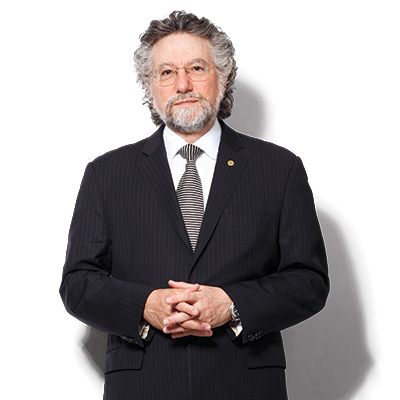Philly Attorney Theodore Simon on Amanda Knox, Ira Einhorn and Decriminalizing Weed

Photograph by Gene Smirnov
This month, you brought the National Association of Criminal Defense Lawyers to Philly for its annual meeting. Do you guys have more fun than the National Association of Prosecuting Attorneys?
[Silence.]
It’s a joke.
The only way I can answer that is to be candid.
Be candid.
Without a doubt, criminal defense lawyers are liberty’s last champion. You know, we protect the rights of the citizen accused individually, and in so doing we protect and preserve the constitutional rights of everyone.
Indeed. You once represented an unborn fetus to rescue a woman from having to testify before a grand jury.
In that one, a woman had appeared in front of a grand jury, and the prosecution thought she lied and offered her immunity to testify again. So that gives the client the cruel trilemma: If she comes back and says something different, she potentially faces perjury; if she doesn’t want to testify, she faces contempt; or she will get prosecuted. So the lawyers came to me for help in what seemed to be an impossible situation. We were able to get medical reports that the stress the mother-to-be was under was detrimental to the well-being and health of the unborn fetus. The case was also in a conservative area, and I assumed the judge would be a right-to-lifer.
Very creative.
I mean, one of my strong points is creativity.
Is there a defendant you wouldn’t represent? To use a local example: Would you have represented Kermit Gosnell?
I don’t have a litmus test. My decision to represent or not represent is not all based on the unpopular nature of the case or the client. Let’s not forget: I represented [Philly hippie and convicted murderer] Ira Einhorn.
Your defense of Einhorn dealt more with his extradition from France than his guilt. Still, did that case test your conscience?
No, it didn’t. And I think that goes to the whole aspect of today’s media impact on high-profile cases. Even your very question implies: “Well, wait a minute — is there something too horrific about the nature of the client?” Why shouldn’t we be looking at the most critical, venerated principles of criminal law? Why are you not asking me, “How does the presumption of innocence or the burden of proof affect this case?”
Speaking of high-profile cases, the Amanda Knox trial is still going on. I thought she had been acquitted by an Italian judge.
I got involved after her initial conviction at the end of ’09. On her appellate trial, she was actually found innocent. Thereafter, the prosecution appealed to the country’s Supreme Court and had her innocent verdict reversed. She went back for a new appellate court trial, where she was convicted. And now, it’s back on appeal.
Is this trial ever going to end?
There’s only one thing that is consistent about this particular case: There’s a compelling and profound absence of evidence. It’s a nightmare that should end, and it’s completely and wholly unjust.
You’ve represented drug kingpins. Should we decriminalize pot?
Absolutely. It’s totally obvious. I think it’s going to spread well beyond the Colorado experience, to the point where I think we’ll probably have Big Tobacco taking over the field. And it’ll be packaged and provided in stores one day.
In that case, you’d lose a lot of business.
I’d be happy.
Originally published in the August 2014 issue of Philadelphia magazine.


